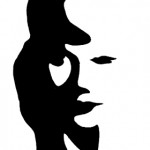I fell in love with Artificial Intelligence (AI) back in the 1990s when I went to Aberdeen University as a post-graduate Stalker, even though I only signed up because it had an exchange program which meant that I could study in Paris for six months.
And, even though they flung me and my pal out of French class for being dreadful students ( je parle le C++), and instead of Paris, I ended up living in Chambéry (which is so small it mentions the launderette in the guidebook), it was a brilliant experience, most surprisingly of all, because it left me with a great love of l’intelligence artificielle: Robotics, machine learning, knowledge based systems.
AI has many connotations nowadays, but back in 1956 when the term was coined, it was about thinking machines and how to get computers to perform tasks which humans, i.e., life with intelligence, normally do.
The Singularity is nigh
Lately, I have been seeing lots of news about robots and AI taking over the world and the idea that the singularity – that moment when AI becomes all powerful it self-evolves and changes human existence – is soon. The singularity is coming to get us. We are doomed.
Seriously, the singularity is welcome round my place to hold the door open for its pal and change my human existence any day of the week. I have said it before: Yes please dear robot, come round, manage my shopping, wait in for Virgin media because they like to mess me about, and whilst you are there do my laundry too, thank you.
And, this got me thinking. One article said the singularity is coming in 2029 which reminded me of all those times the world was going to end according to Nostradamus, Old Mother Shipton, the Mayan Calendar, and even the Y2K bug. As we used to say in Chambéry : Plus ça change, plus c’est la même chose. To be honest, we never, ever said that, but my point is that our fears don’t change, even when dressed up in a tight shiny metallic suit. Nom du pipe!
We poor, poor humans we are afraid of extinction, afraid of being overwhelmed, overtaken, and found wanting. True to form I will link to Maslow’s hierarchy of needs and repeat that we need to feel safe and we need to feel that we are enough. Our technology may be improving – not fast enough as far as I am concerned – but our fears, our hopes, our dreams, our aspirations remain the same. As I say in the link above, we have barely changed since Iron Age times, and yet we think we have because we buy into the myth of progress.
We frighten ourselves with our ghosts. The ghosts which haunt us: In the machine, in the wall, and in our minds where those hungry ghosts live – the ones we can never satisfy.
The ghost in the machine
The ghost in the machine describes the Cartesian view of the mind–body relationship, that the mind is a ghost in the machine of the body and was a term coined by philosopher Gilbert Lyle to criticise Decartes theory. It is quoted in AI, because after all it is a philosophical question: What is the mind? What is intelligence? And, it remains a tantalising possibility, especially in fiction that somewhere in the code of a machine or a robot, there is a back door, or cellular automata – a thinking part, which like natural intelligence is able to create new thoughts, new ideas, as it develops. The idea that there is a ghost in the machine is an exciting one which is why fiction has hung onto it like a willo the wisp and often uses it as a plot device, for example, in the Matrix (there’s lots of odd bits of software doing their own thing) and I, Robot (Sunny has dreams).
Arthur C Clarke talked about it when he said that technology is magic – something, I say all the time, not least of all, because it is true. When I look back to the first portable computer I used and today, the power of the phone in my hand, well, it is just magic.
That said, we want the ghost in the machine to do something, to haunt us, to surprise us, to create for us, because we love variety, discoverability, surprise, and the fact that we are so clever, we can create life. Actually we do create life, mysteriously, magically, sexily.
The ghost in the wall
The ghost in the wall is that feeling that things change around us with little understanding. HCI prof, Alan Dix uses the term here. If HCI experts don’t follow standards and guidelines, the user ends up confused in an app without consistency which gives the impression of a ghost in the wall moving things, ‘cos someone has to be moving the stuff, right?
We may love variety, discoverability and surprise, but it has to be logical to fit within certain constraints and within the consistency of an interface with which we are interacting, so that we say: I am smart, I was concentrating, but yeah, I didn’t know that that would happen at all, in the same we do after an excellent movie, and we leave thrilled at the cleverness of it all.
Fiction: The ghost of the mind
Fiction has a lot to answer for. Telling stories is how we make sense of the world, they shape society and culture, and they help us feel truth.
Since we started storytelling, the idea of artificial beings which were given intelligence, or just came alive, is a common trope. In Greek mythology, we had Pygmalion, who carved a woman from ivory and fell in love with her so Aphrodite gave her life and Pervy Pygmalion and his true love lived happily ever after. It is familar – Frankinstein’s bride, Adam’s spare rib, Mannequin (1987). Other variations less womeny-heterosexy focused include Pinocchio, Toy Story, Frankinstein, Frankenweenie, etc.
There are two ways to go: The new life and old life live happily ever after and true love conquers all (another age old trope), or there is the horror that humans have invented something they can’t control. They messed with nature, or the gods, they flew too close to the sun. They asked for more and got punished.
It is control we are after even though we feel we are unworthy, and if we do have control we fear that we will become power crazed. And then, there are recurring themes about technology such as humans destroying the world, living in a post-apocalyptic world or dystopia, robots taking over, mind control (or dumbing down), because ultimately we fear the hungry ghost.
The hungry ghost
In Buddhism, the hungry ghosts are when our desires overtake us and become unhealthy, and insatiable, we become addicted to what is not good for us and miss out on our lives right now.
There is also the Hungry Ghosts Festival which remembers the souls who were once on earth and couldn’t control their desires so they have gotten lost in the ether searching, constantly unsatisfied. They need to be fed so that they don’t bother the people still on earth who want to live and have good luck and happy lives. People won’t go swimming because the hungry ghosts will drown them, dragging them down with their insatiable cravings.

Chinese character gui meaning ghost (thanks @john_sorensen_AU)
In a lovely blog the Chinese character above which represents ghost but in English looks like gui, which is very satisfying given this is a techyish blog, is actually nothing to do with ghosts or disincarnate beings, it is more like a glitch in the matrix – a word to explain when there is no logical explanation. It also explains when someone behaves badly – you dead ghost. And, perhaps is linked to when someone ghosts you, they behave badly. No, I will never forgive you, you selfish ghost. Although when someone ghosts you they do the opposite to what you wish a ghost would do, which is hang around, haunt you, and never leave you. When someone ghosts you, you become the ghost.
And, for me the description of a ghost as a glitch in the matrix works just as well for our fears, especially about technology and our ghosts of AI – those moments when we fear and when we don’t know why we are afraid. Or perhaps we do really? We are afraid we aren’t good enough, or perhaps we are too good and have created a monster. It would be good if these fears ghosted us and left us well alone.
Personally, my fears go the other way. I don’t think the singularity will be round to help me any time soon. I am stuck in the Matrix doing the washing. What if I’m here forever? Please come help me through it, there’s no need to hold the door – just hold my hand and let me know there’s no need to be afraid, even if the singularity is not coming, change is, thankfully it always is, it’s just around the corner.
[11.15mins |1550 words]







Another terribly interesting read Ruth. I really liked your examples of artificial beings/life from fiction. I love all types of science fiction, especially dystopian films – but I have to admit that my love of technology trumps any irrational fears.
Thanks John, I feel exactly the same way. Love the fiction and too excited about technology to get superstitious ?